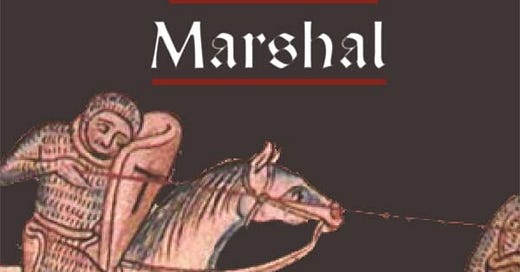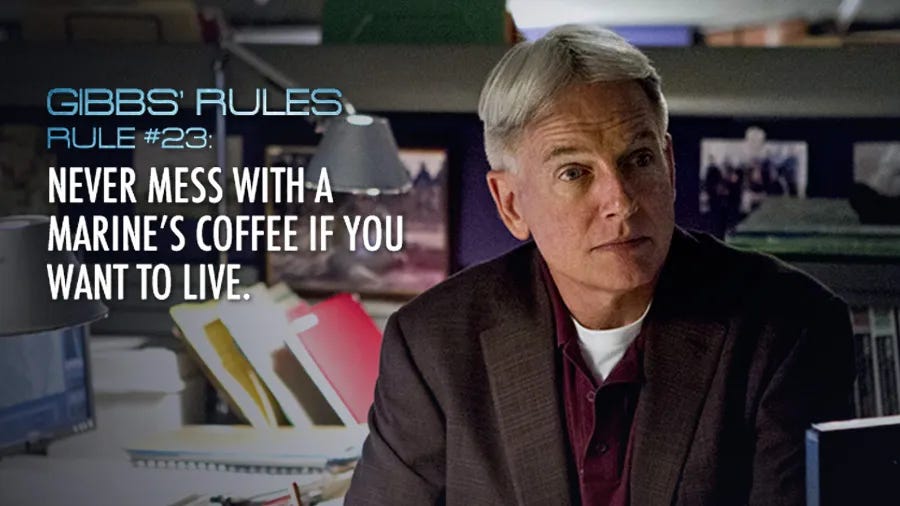So, I am a fan of rules as a way of codifying “best practices,” whether it be for management practices, life, or otherwise. In the past I’ve written about George Washington’s rules here, leadership rules from the Ancient Greeks (here and here), Fred Harvey’s rules (Fred was the creator of the first restaurant chain in America).
I have my own set of professional rules, somewhat inspired by the TV show NCIS and its lead character Leroy Jethro Gibbs. You can read my rules here, and Gibb’s rules here. Stick with me for a bit, we’ll end up at Richard, I promise.
Today I want to focus on Gibb’s rule #5, “You don’t waste good”. It arose when Tony DiNozzo (another NCIS character) was on a different police force, and doing a joint investigation with Gibbs involving corruption within the police force. Eventually, in digust, Tony quits the police force. Gibbs respects his abilities, and offers him a job on the spot, because, “You don’t waste good.”
But now we are no longer in the modern era, we are in 1189 A.D., and King Henry II (Richard’s father) is on the run, being chased by Richard and King Philip II of France. Richard and Henry have been at loggerheads over Richard’s inheritance, and it’s turned ugly. Henry is trapped near Le Mans, and very sick. Trying to escape, he sends William Marshal to cover his escape, as Richard chases after them, wearing nothing but a doublet and an iron cap for speed. Widely known as “England’s greatest knight,” William is a formidable warrior with a strict moral code. That’s Marshal with one “l”, thank you. And at this point in his life, Richard is also a formidable warrior, one few could stand against.
Let’s have the anonymous poet of the Histoire de Guillaume le Maréchal, The History of William Marshal, tell the story, as translated by Nigel Bryant:
Seeing the commotion to his rear, William des Roches, one of those retreating with the king, turned about, and went and met Colombières with a blow that made his stout, strong lance smash and shatter to his fist. Up then came the count of Poitiers (Richard), spurring furiously, and cried to des Roches:
“William! You’re mad to hang about - a big mistake! You're wasting your time - you’re deluded! I’d shift if I were you!”
The Marshal was less than pleased to see the pursuers gaining on them; alert and ready as ever, he promptly took his lance and shield and spurred straight towards the approaching Count Richard. Seeing him coming, the count roared:
“God’s legs, Marshal, don’t kill me! It wouldn’t be right - I’m quite unarmed!”
“No”, replied the Marshal, “I won’t kill you - I’ll leave that to the Devil!”
And he drove his lance clean through Count Richard’s horse, killing it on the spot: it didn’t move another step - it fell dead and the count fell with it. It was a fine blow indeed, and proved the saving of the party in retreat - without it they’d have been slain or captured: their pursuers had been bent on nothing less, and would have achieved it but for the Marshal’s feat. Knights and soldiers were swarming forward, but Count Richard leapt up and cried:
“Go no further! You’re mad, you’re crazy - you’ll be undone!”
And William makes his exit, leaving an infuriated Richard to stew.
But soon, King Henry is dead, and Richard is King.
They will meet at Henry’s funeral. William and his retinue are unsurprisingly fearful for their future. They arrive in the church, where Richard is silently contemplating his father’s body. They approach him, undoubtedly nervous.
“Outside,” says Richard, expressionless.
“Marshal, my good sir, the other day you tried to kill me, and would have done so for sure if I hadn’t turned your lance away with my arm. It would have been a black day indeed!”
Richard is not above a little face saving.
Marshal replies, more or less, “Sir, I’d no intention of killing you and didn’t try. If I’d meant you dead, you’d be dead. I don’t think I was wrong to kill your horse and I’m not sorry I did.”
Marshal is not above a little face saving as well, but a bit braver as Richard holds all the cards at this point. To which Richard replies, “You don’t waste good.”
Well no, what he really said, according to the histories, is “You’re forgiven, Marshal, I shan’t hold it against you.” And then: “I want you to go at once to England. Take charge of my lands and my affairs, do whatever’s necessary, and see that we’ve reason to be satisfied on our arrival.”
The King’s chancellor then reminds Richard that King Henry has given the Marshal the damsel of Striguil as wife.
“God’s legs, no, he didn’t,” says Richard. “He only promised to! But I do now give her to him absolutely,” at one stroke making William one of the richest men in England, due to his future wife’s lands, and also one of the most powerful men in England.
That is how “you don’t waste good.” William Marshal will serve the Plantagenet family for nearly 50 years.






